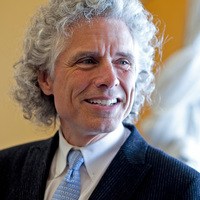
Aydin Bal
Professor (Full)
less
Related Authors
Noel B. Salazar
KU Leuven
Steven Pinker
Harvard University
Michel Alhadeff-Jones
Columbia University
Tomasz Zarycki
University of Warsaw
Sharon Tettegah
University of California, Santa Barbara
Melani Cammett
Harvard University
David Seamon
Kansas State University
John Johnson
Pennsylvania State University
Cor Baerveldt
University of Alberta
Armando Marques-Guedes
UNL - New University of Lisbon
InterestsView All (21)










Uploads
Papers by Aydin Bal
possibilities in Change Laboratories and other formative interventions to develop just and sustainable solutions to global crises.
and refugees have become a phenomenon affecting societies in many geographies. It is very important for the countries exposed to migration to plan the education services to be provided to refugees in order to ensure their integration into society. In this context, a significant number of refugee individuals took refuge in the country for different reasons. Increasing the quality of educational services offered to refugee individuals at school age can only be possible with the understanding by stakeholders of this new phenomenon. The present study examined Syrian refugee students’ educational experiences in Eskisehir, Turkey. The ethnographic data were generated through participant observations and semi-structured interviews with 19 participants, including nine teachers, two school principals, three parents and six students at a public elementary school in a low-income neighborhood in Eskisehir. Five themes emerged through induction
analyses. The findings revealed the behavioral, social and academic problems that Syrian refugee students experienced. Teachers and school administrators described the home address-based school enrollment system as an obstacle for refugee youth to study with their non-refugee peers. This policy decreased the quality of education as it increased the density of refugee students at schools. Participants’ suggestions for refugee education included exclusively providing
Turkish language courses to newly arrived students, providing psychological support for traumatic stress related to war and immigration, supporting teachers with appropriate teaching materials and professional development opportunities for refugee education, and establishing active family-school partnerships.
and often opposing histories and goals worked together to critically examine their existing behavioral support system and racial disparities in practices, assumptions, processes, and outcomes from multiple perspectives. We utilized the method of expansive learning actions to analyze qualitative data from ten subsequent sessions. Our findings showed that local stakeholders successfully formed and sustained a diverse working group that represented families, educators, researchers, and community members. Learning Lab members worked collaboratively
to question their existing school practices and to examine the root causes of racial disproportionality through historical and empirical analyses. We discuss both possibilities and challenges regarding inclusive knowledge production and the systemic transformation process at local schools.
harsher and more frequent school discipline than White counterparts.
Exclusionary discipline may result in adverse academic, social,
and life outcomes. There is an urgent need for creating an inclusive,
equity-oriented learning environment where Native American students’
identities, well-being, and dignity are promoted and nurtured.
To develop a culturally responsive behavioral support system
aimed to address racial disparity in school discipline, the Indigenous
Learning Lab was implemented at a rural high school in Wisconsin.
Indigenous Learning Lab is an inclusive problem-solving process
through which Native American students, parents, and community
members and non-native school staff collectively examine disproportionality in school discipline and design a new school-wide
system. The purpose of this study is to examine how participation
in Indigenous Learning Lab expanded local stakeholders’ individual
agency to collective, transformative agency in designing a culturally
responsive behavioral support system.
diverse experiences, perspectives, practices, and goals of their school community. A qualitative analysis of the Learning Lab process was conducted related to the development of the new system. Members examined outcomes in the existing discipline system, identified daily manifestations of the inner contradiction and collectively designed a culturally responsive system. The study showed the “how” of a systemic design and transformation process that helped develop a deeper understanding of educational change as a form of collective learning. The study demonstrated how a secondary artifact (system mapping) might facilitate movement from problem-definition to envisioning new possibilities. Given the inability of top-down education policies to impact sustained systemic transformation in schools, Learning Lab provides an ecologically valid collective knowledge-production and systemic design process that shows the possibilities of transforming marginalizing
systems from the ground-up and collectively envisioning schools as spaces of solidarity, emancipation, and innovation.
possibilities in Change Laboratories and other formative interventions to develop just and sustainable solutions to global crises.
and refugees have become a phenomenon affecting societies in many geographies. It is very important for the countries exposed to migration to plan the education services to be provided to refugees in order to ensure their integration into society. In this context, a significant number of refugee individuals took refuge in the country for different reasons. Increasing the quality of educational services offered to refugee individuals at school age can only be possible with the understanding by stakeholders of this new phenomenon. The present study examined Syrian refugee students’ educational experiences in Eskisehir, Turkey. The ethnographic data were generated through participant observations and semi-structured interviews with 19 participants, including nine teachers, two school principals, three parents and six students at a public elementary school in a low-income neighborhood in Eskisehir. Five themes emerged through induction
analyses. The findings revealed the behavioral, social and academic problems that Syrian refugee students experienced. Teachers and school administrators described the home address-based school enrollment system as an obstacle for refugee youth to study with their non-refugee peers. This policy decreased the quality of education as it increased the density of refugee students at schools. Participants’ suggestions for refugee education included exclusively providing
Turkish language courses to newly arrived students, providing psychological support for traumatic stress related to war and immigration, supporting teachers with appropriate teaching materials and professional development opportunities for refugee education, and establishing active family-school partnerships.
and often opposing histories and goals worked together to critically examine their existing behavioral support system and racial disparities in practices, assumptions, processes, and outcomes from multiple perspectives. We utilized the method of expansive learning actions to analyze qualitative data from ten subsequent sessions. Our findings showed that local stakeholders successfully formed and sustained a diverse working group that represented families, educators, researchers, and community members. Learning Lab members worked collaboratively
to question their existing school practices and to examine the root causes of racial disproportionality through historical and empirical analyses. We discuss both possibilities and challenges regarding inclusive knowledge production and the systemic transformation process at local schools.
harsher and more frequent school discipline than White counterparts.
Exclusionary discipline may result in adverse academic, social,
and life outcomes. There is an urgent need for creating an inclusive,
equity-oriented learning environment where Native American students’
identities, well-being, and dignity are promoted and nurtured.
To develop a culturally responsive behavioral support system
aimed to address racial disparity in school discipline, the Indigenous
Learning Lab was implemented at a rural high school in Wisconsin.
Indigenous Learning Lab is an inclusive problem-solving process
through which Native American students, parents, and community
members and non-native school staff collectively examine disproportionality in school discipline and design a new school-wide
system. The purpose of this study is to examine how participation
in Indigenous Learning Lab expanded local stakeholders’ individual
agency to collective, transformative agency in designing a culturally
responsive behavioral support system.
diverse experiences, perspectives, practices, and goals of their school community. A qualitative analysis of the Learning Lab process was conducted related to the development of the new system. Members examined outcomes in the existing discipline system, identified daily manifestations of the inner contradiction and collectively designed a culturally responsive system. The study showed the “how” of a systemic design and transformation process that helped develop a deeper understanding of educational change as a form of collective learning. The study demonstrated how a secondary artifact (system mapping) might facilitate movement from problem-definition to envisioning new possibilities. Given the inability of top-down education policies to impact sustained systemic transformation in schools, Learning Lab provides an ecologically valid collective knowledge-production and systemic design process that shows the possibilities of transforming marginalizing
systems from the ground-up and collectively envisioning schools as spaces of solidarity, emancipation, and innovation.